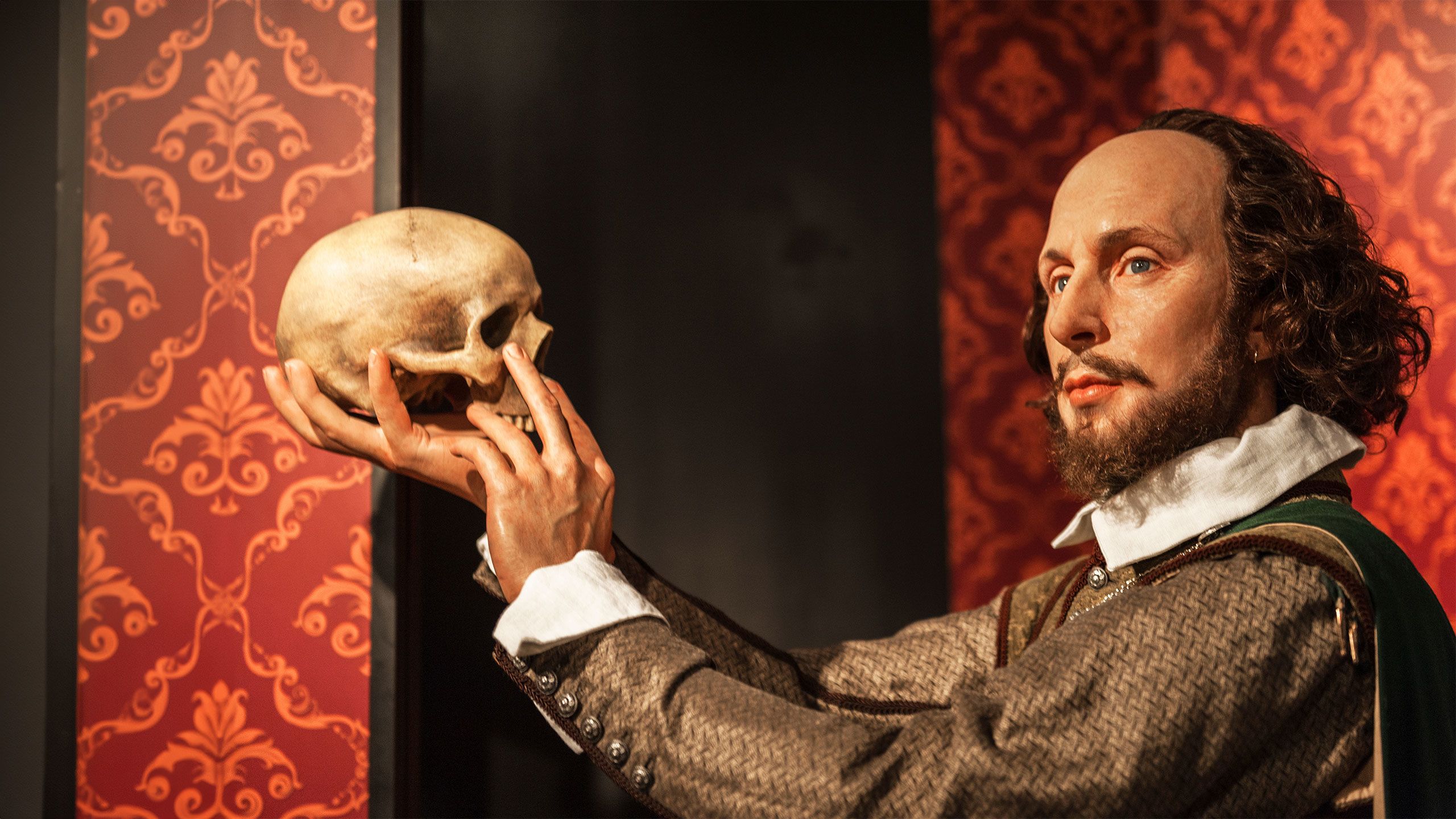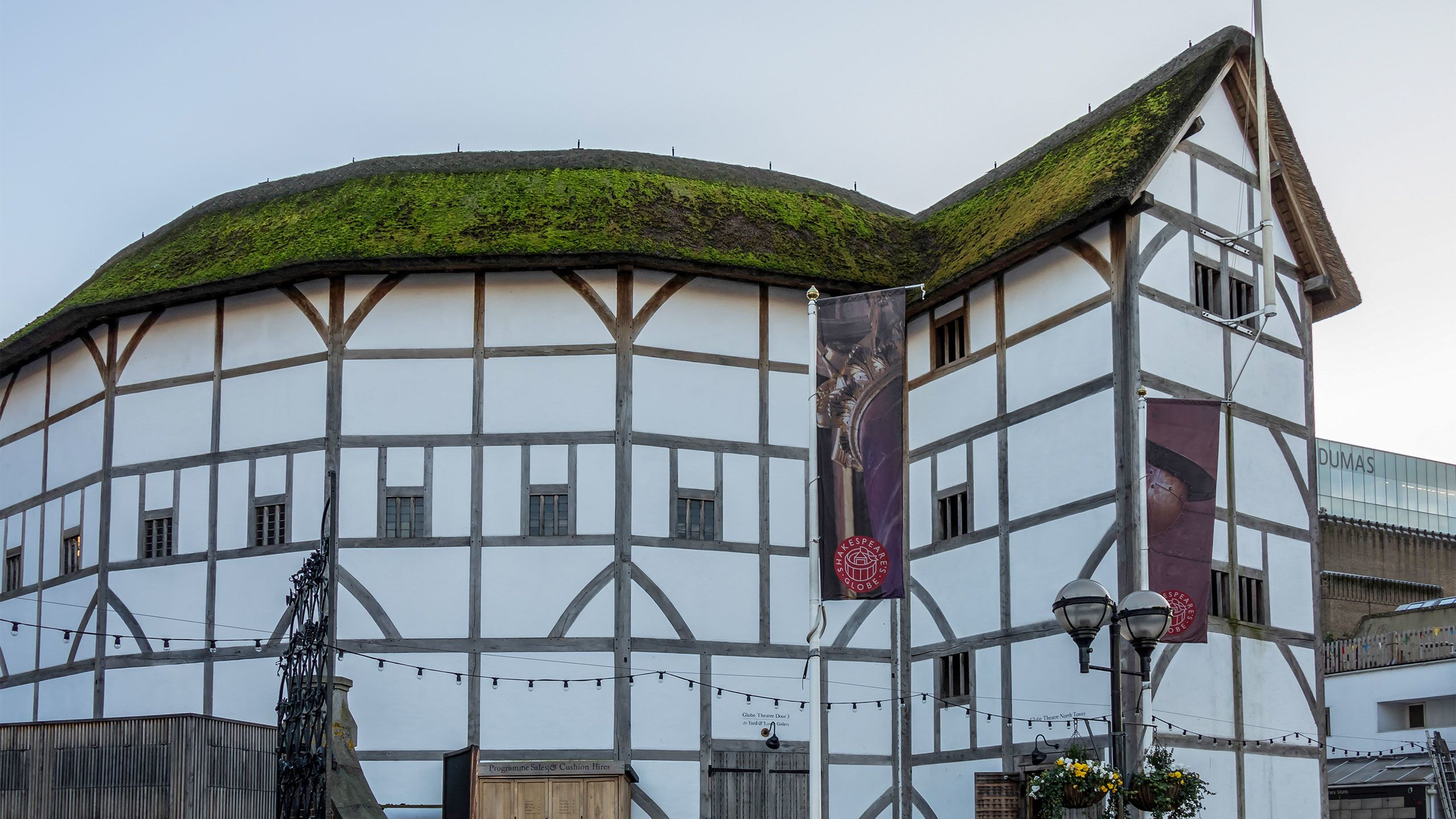Happy 460th Birthday, William Shakespeare!
Supporter of democracy and friend to the common good, the Bard of Avon is as relevant as ever in today’s tumultuous times, according to a faculty ally

William Shakespeare was born in Stratford-upon-Avon, England, in April 1564. The exact date of his birth is not recorded, but the birth of this giant of a playwright and poet is most often celebrated around the world on April 23.
At Rutgers–Camden, Professor of English Chris Fitter is throwing down the gauntlet and declaring that Shakespeare is a relevant and important voice in today’s rough and rowdy times. Fitter is fighting hard to ensure the real Shakespeare—not the elite, marble-busted playwright, but the radical activist—does not go gently onto some dusty library shelf.
Shakespeare is widely considered the greatest dramatist of all time as well as the most influential writer in the history of the English language. But is his reputation now finding itself besieged and battered on the modern world’s calamitous stage?

William Shakespeare
William Shakespeare

Chris Fitter, professor of English
Chris Fitter, professor of English
“Were he alive today, Shakespeare would be shouting out for the preservation of democracy,” Fitter said. “I believe he would be using his plays to help us sift through the social complications and complexities of simply being alive in the 21st century.”
According to Fitter, Shakespeare is wrongly perceived as an apologist for the divine right of Tudor monarchs, including Elizabeth I and James I. Fitter believes Shakespeare was a subversive voice offering a contrasting perspective to a restless public enduring the sharp end of interminable wars, almost constant hunger due to successive crop failures, deepening mass poverty, the cyclical reoccurrence of the Black Death, and more.
Fitter states in his latest book, Majesty and the Masses, that the belief in Shakespeare’s “unquestioned” support of the monarchy is a taken-for-granted myth.
“Shakespeare was a protest playwright,” Fitter said. “He was a ventriloquist of popular grievances, publicizing the disastrous and all-too-common failings of kings and lords who convulsed the nation with wars.”
Fitter claims the art of grasping the true Shakespeare voice is to see the plays performed; he added that in order to get his works through state censorship, Shakespeare relied on the performances of his actors to convey the reality of his words to the public. And it was mostly the masses who were going to see Shakespeare’s plays at the time when they were first performed.
During the Elizabethan era, admission to the Globe started at one penny—the price of a beer or a loaf of bread. Low cost was one reason the theater was so popular. A penny bought standing room at the foot of the stage. However, roofed gallery seating was more expensive.
“Shakespeare is the master of the stage, not the page,” Fitter said. “He was about alehouse indignation as much as throwing light upon palace intrigue. Shakespeare was often grief-stricken over the fruitless sufferings imposed by the powerful.”
Inarguably, the words of William Shakespeare are still spoken every day. He was a populist hero who wanted to be understood by the masses. He is credited with the invention or introduction of over 1,700 words that are still in use. He added to the breadth of vernacular English with words like bandit, critic, gossip, catastrophe, emphasis, mutiny, and lonely. He often combined words to improve descriptions, creating the likes of bedroom and downstairs. He changed nouns into verbs—friend, the noun, became “to friend.”
“Disorder, that hath spoil’d us, friend us now!” Shakespeare wrote in Henry V—in 1599. Shakespeare set the stage for the modern act of “friending” on social media. Move over, Mark Zuckerberg and Elon Musk.

Statues of William Shakespeare and King Henry V
Statues of William Shakespeare and King Henry V


Shakespeare changed verbs into adjectives by adding prefixes or suffixes. Why just have the gathering gloom when you can be gloomy? And he first penned phrases including, “love is blind,” “all that glitters is not gold,” “wild goose chase,” “brave new world,” and “trust none.”
In today’s seemingly brave new world, Fitter asks that Shakespeare the playwright continue to be embraced as a guide to challenging times.
Fitter’s hope is that Shakespeare remains accessible to students, teachers, and all those interested in Shakespeare. His ultimate hope is that what gets taught in classrooms as the “meaning” of Shakespeare is no longer the obsession with courts and noblemen, but the sufferings of countless impoverished commoners, and an eager pressure for reform.
“Then, Shakespeare studies will have become a forum for discussing democracy and social justice,” said Fitter. “And that would have made the courageous and wily old playwright very happy.”
Fitter is the editor of The Routledge Companion to Shakespeare and Politics, a 30-chapter volume set to be published in 2025. He is currently writing In Reclamation of Shakespeare’s Henry V: Three Historical Readings. Fitter intends next to write a layman’s guide to Shakespeare.

William Shakespeare marble statue erected in 1874 in Leicester Square Gardens, London, England
William Shakespeare marble statue erected in 1874 in Leicester Square Gardens, London, England

Design: Douglas Shelton
